
Running some 380km from Conwy to Cardiff, and taking in a good proportion of the bigger hills in Wales, the 2021 Dragon's Back Race was the longest and toughest to date. A relative newcomer to running, Chris Harle embarked on a year-long buildup so that he could hit the starting line with the highest chance of success. Sadly even the best laid plans can go awry. So what went right, what went wrong, and what's his advice for anyone tempted to take on such a challenge?
The UK has a population of over 66 million, yet even here long journeys can be made that explore the nation's rich landscape of ever-changing scenery without constantly bumping into crowds of people. I have been lucky to experience this on many occasions. A Scottish coast to coast, the Pennine Way, Offa's Dyke Path, and various coast to coasts across England (walking, cycling and kayaking) - all stand out as memorable experiences. Perhaps this is why I could relate to the Dragon's Back Race. It first registered on my radar of interest when I was looking for a reason to continue the recreational running I had started when the pandemic lockdown was enforced in March 2020.
The most well-used word to describe the Dragon's Back is 'brutal', but even this seemed inadequate for the first two days of this year's race, when a mini heatwave struck North Wales
A five-day race was a completely new level of challenge but for some reason it appealed, and I genuinely liked the idea of pushing myself to the limits of possibility where the outcome was anything but certain. The moment I became hooked coincided with a news update from the Dragon's Back organisers - 'the world's toughest mountain race just got tougher' with the addition of a 6th day. From Conwy Castle in the north to Cardiff Castle some 380km (240 miles) away in the south the route traverses much of the high ground in Wales with 17,400m (57,000') of ascent.
Before I signed up for this event and paid the £1200 entry fee, I needed an endorsement from two people. Firstly, my wife Jane was consulted. Her response could not have been more supportive and encouraging or was it just because she could take no more of my housebound restlessness during the pandemic? Secondly, I sought the opinion of my twin brother Colin. I interpreted his less than enthusiastic reaction as 'get real, don't you realise how old you are?" It was an appropriately grounding comment that I should have expected. Then he spoiled it by changing his mind and telling me to go for it!
"You only get one shot, do not miss your chance to blow
This opportunity comes once in a lifetime
You can do anything you set your mind to, man." (Well said Mr Eminem)
I now had exactly one year to get my act together. My first action was to set a budget for further costs such as insurance, equipment, chiropractic treatment for my back and for expert assistance. What I really needed was a bespoke training plan and for this I went to David Taylor, a fell running coach from Sheffield. The schedule mapped out my life for the next year and everything else was arranged around it. With no children and only a part-time job this was relatively easy for me.
The vast majority of competitors only run when the terrain and gradient are favourable, and rarely uphill!
For others with a family and full-time jobs I realise that it would take even more dedication. There were no dramas during that year of preparation because I incurred no injuries and missed only one training session out of 240, covering about 3,500km and 100,500m of ascent. During that time, I had less than a handful of alcoholic drinks, and ate for England whilst reducing my weight to a level not attained since I was a teenager.
The key date this year was April 12th when cross border travel between England and Wales was finally allowed. This meant I was able to reccy most of the route (at least 90%) on a succession of forays into the mountains. My secret weapon was Jane – her willing taxi service enabled very efficient and productive linear reccys that wasted no time and energy on devising circular routes or on the use of infrequent public transport.
Before I describe the actual race I need to clarify what is meant when I use the word 'running'. Apart from the elite athletes the vast majority of 'runners' only run when the terrain and gradient are favourable, and rarely uphill. For plodders like me it's safe to say that it would have been quite an occasion to witness me doing anything faster than a moderately brisk shuffle. I am not a speed merchant but like the Duracell bunny I can keep going and going. So, 'running' can mean walking, fast walking, striding out with trekking poles, jogging, and even running.
The most well-used word to describe the Dragon's Back is 'brutal', but even this seemed inadequate for the first two days of this year's race, when a mini heatwave struck North Wales with soaring temperatures nearing 30°. Many retired due to injury, exhaustion and dehydration or were timed out at the Llyn Ogwen and Pen-y-Pass checkpoints. Others readily admitted to their lack of race specific training i.e. you can never prepare yourself for mountain terrain by training on flat or undulating ground however many miles you rack up in a training week. Whatever the reason for retiring it must have been difficult to accept that it was game over so early, even though it was possible to continue doing part days as a non-competitor. It is of little comfort they were in good company - two previous winners and some very strong contenders also didn't make it further than Day One.
At the time I was completely oblivious to the difficulties many runners were having. After nearly fainting going up Tryfan I turned inward and became totally focussed on managing my liquid intake and pace. Used regularly by guides accompanying a Kilimanjaro trek I did several years ago, the Swahili word for slowly, 'polepole', became my mantra. It was good advice then and even better advice now as I slogged up the Glyder Fach screes.
Following the wonderfully precipitous Crib Goch in perfect condition, the top of Snowdon was quickly reached. On this occasion the much-publicised lengthy queue for summit selfies was not evident. Beyond Lliwedd at the end of the Snowdon horseshoe my weary jelly legs had to cope with a steep grassy descent through bracken and hidden rocks. This was negotiated by a series of ungainly tumbles and a stream of self-directed oaths to take more care.
The campsite was a welcome haven of caring and helpful volunteers and support crew. The logistics of running such an event is utterly mind-blowing and it is amazing to think that this vibrant village of sleeping tents, toilets, and marquees housing the kitchen, medical and control centres, and a large communal area, all lit up and powered by portable generators, was disassembled and reconstructed every day as the race progressed south.
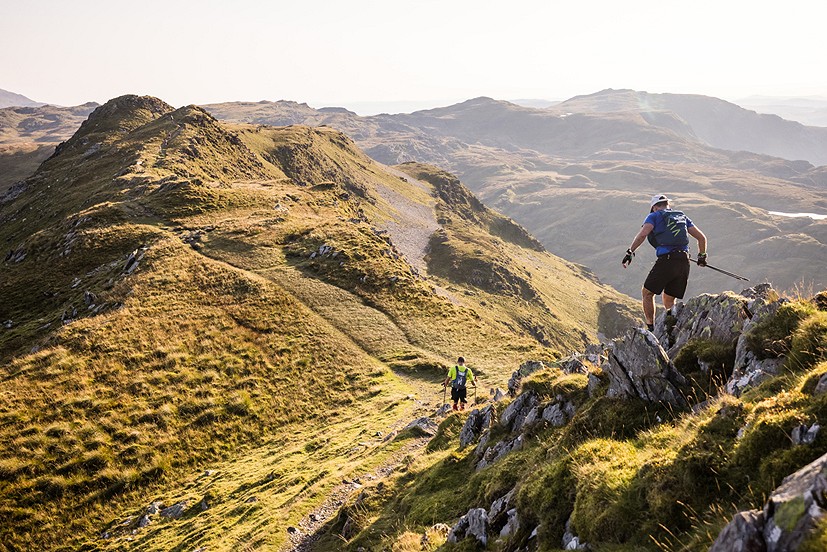
If Day One was hard, Day Two was harder. Unrelenting heat, the stark Moelwynion to contend with, and then the feared and gnarly Rhinogydd to weave through. Oh, what fun we had! Shade was a rare luxury, but Dragon's Back runners could be found in every stream, lake and puddle in an effort to cool down.
By the end of Day Two 248 runners of the 367 starters had retired. This was an unprecedented rate of attrition and yet somehow, I had survived.
The fees and other expenses are a lot to spend if you don't get to the end of Day Two, so here are my top tips for getting to Day Three
- Have a clear strategy and stick to it – run your own race and do not get tempted by those unhelpful competitive urges that result in you going faster than is sensible.
- DO NOT run out of Conwy Castle up those steep roads unless your name is Simon Roberts. It may look impressive to friends and family lining the route but there is a long way to go.
- If it is sunny, cover up. I'm very susceptible to the sun so it seemed bonkers that so many runners had short sleeves, shorts, and no hat in such sweltering conditions.
- Save your breath for Tryfan and cut the chatter. You may be the type that needs sociable banter but a loud and lengthy discourse on your personal history of ultrarunning is both draining for you and on the listener.
Things don't get any easier on Day Three because the remaining competitors are immediately faced with an unrelenting ascent of Cadair Idris. Later the cruel (some may say unnecessary) there and back of Tarren Y Gesail is a real test of commitment. The support point at Machynlleth had a challengingly tight cut-off time and I was forced to run the last 6km, making it with less than 15 minutes to spare. The sting in the tail was a traverse of the highest summit in mid Wales, Pumlumon Fawr. So, in one short paragraph I've covered 70km, 3400m of ascent and a 15hr 20-minute day that both started and finished in the dark. Eat, sleep, run, repeat…
By this stage of the race my emotions were very close to the surface, and it didn't take much for a little lip quiver or tear to catch me by surprise. The evening print-out of Dragon Mail from friends and family had a similar effect. Such kind words of support and encouragement from so many people was quite overwhelming. It also became apparent that many were watching my live 'dot' on the website map generated by a GPS tracker which everyone was obliged to carry. From my 90-year-old mum to my nephew James in Sydney my progress was being continually monitored. No pressure then. Fortunately, there were no embarrassing navigational mistakes and I only needed to consult the map on one occasion (in Machynlleth town centre looking for the support point!).
Day Four offers a different set of challenges characterised by wind farm tracks, tussocky moorlands with indistinct paths and long sections of tarmac - hard on the feet and joints but generally easier to make good time. By now I was moving with a limp which was noticed by someone overtaking me. Before I could blink a neoprene support bandage magically materialised and was offered to me. Such a random act of kindness was typical of the help given freely on the mountains. When one runner fell and dislocated his shoulder it was an unbelievable coincidence that someone following him was a shoulder specialist who was able to reset the dislocation, enabling the injured runner to carry on. In another instance a critically dehydrated sheepdog was rescued by a runner. The farmer could not have been more grateful.
A vibrant village of tents, toilets, and marquees housing the kitchen, medical and control centres, and a large communal area, all lit up and powered by portable generators, was disassembled and reconstructed every day
The support point on the Elan village green was a welcome sight lit up by the presence of Jane and friends Mad, Ibby and Charlie (their dog). This was the fourth consecutive day that they had met and cheered me on with their smiles, encouragement and hugs – priceless.
Once over Drygarn Fawr, a remote hill on the Abergwesyn Common, it was mainly roads to the overnight camp. I shared the last few miles with a fellow knee sufferer, and this somehow spurred us on to ignore the aches and stride on towards camp. Once settled in and fed I visited the medical tent and got some advice from the physio. Yes, I could carry on, but I shouldn't expect it to get any less painful!
Carrying an injury, Day Five was inevitably going to be my nemesis. It was potentially another monster day for the 100 runners who were still competitive, but I managed just five hours' worth before calling it a day at Usk Reservoir. Although I just about made the cut-off time here, I knew from a recent reccy that the distance and time for making the next at Storey Arms was well outside my reach. It was a strangely unemotional and pragmatic decision. The Dragon had defeated another victim and I was found wanting. Game over. No doubt friends and family would be confused about the disappearance of my online 'dot' but for me the comfort of a Premier Inn in Cardiff with my wife seemed to be reasonable compensation.
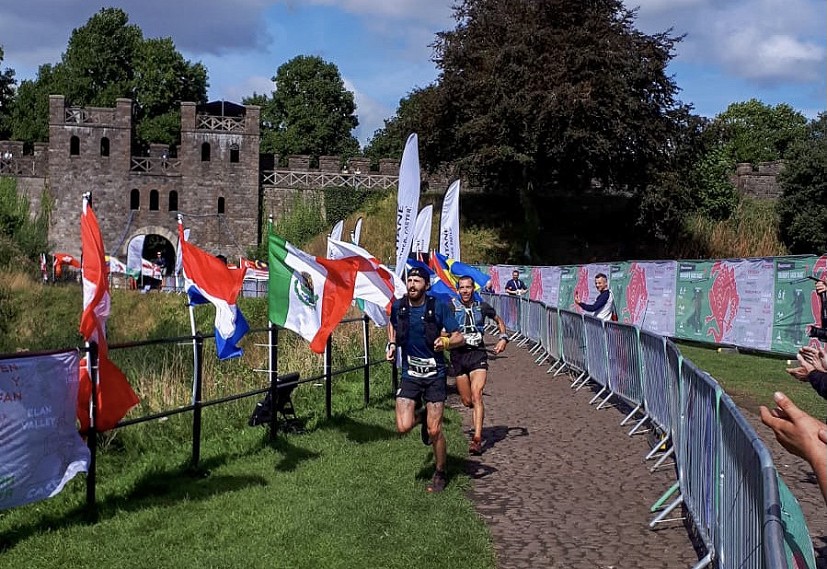
So hearty congratulations to the overall winner Simon Roberts, Katie Mills the first female (7th overall), Alastair Hubbard the first male vet (9th overall), and Patrizia Strandman from Sweden the first female vet (69th overall). No less an achievement is the 86 others who finished – respect, you deserved your dragon trophies.
My right knee instantly seized once I stopped, and now two weeks on, the swelling has gone down, and I can manage a slow walk. My local sports physio suggested that it was not a long-term injury but would still need 6-8 weeks of rest and exercises for a full recovery.
Equally frustrating is the insomnia I've had since finishing. Apparently, this is not unusual after endurance events, but I certainly crave more than two hours continuous sleep, and fewer nocturnal wanderings.
Little sleep has given me plenty of opportunity to reflect on my experience. My conclusions are reassuringly positive. Of course, I am disappointed not to have finished in Cardiff, but I have no self-recriminations or regrets. I cannot think of anything that I would have done substantially different either with my pre-race training and preparations or during the race itself. On this occasion it just wasn't meant to be, and I am comfortable with that.
Final thoughts:
- Unless you are an exceptional natural talent then nothing but total commitment and hard work will get you to the finish line.
- Do lots of race specific training – get to the mountains!
- Reccying the route will give you confidence and potentially save considerable time and stress during the race.
- Be kind and generous to fellow runners – you will be surprised what comes back your way.
- Expect the unexpected. If it hadn't been a heatwave no doubt it would have been driving rain and zero visibility.

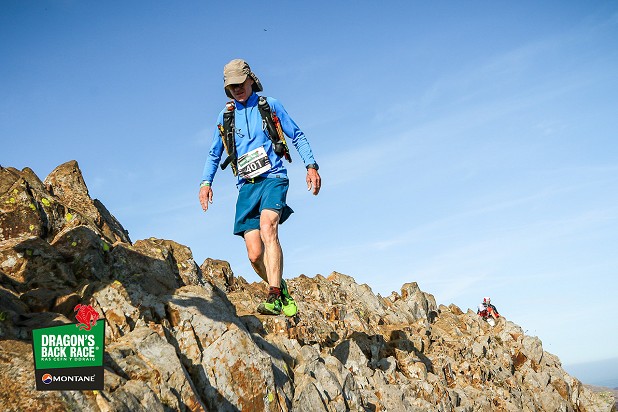
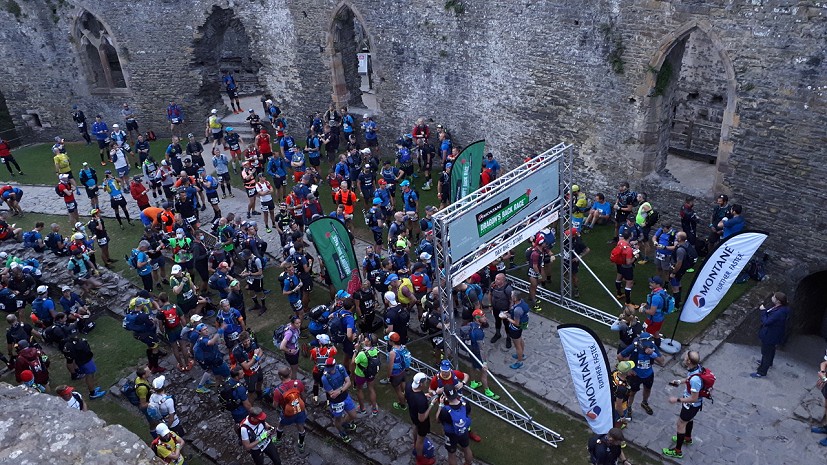
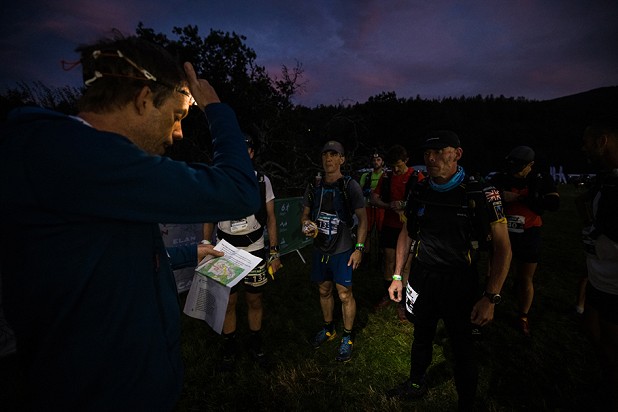
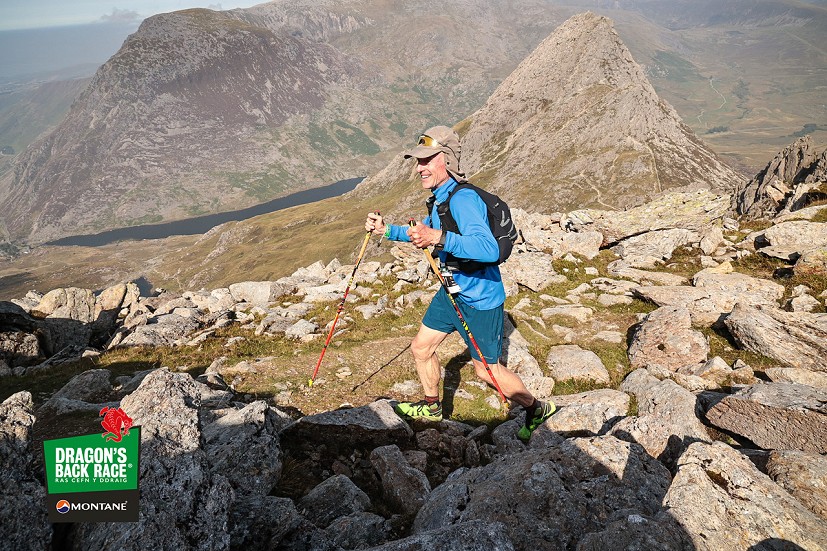
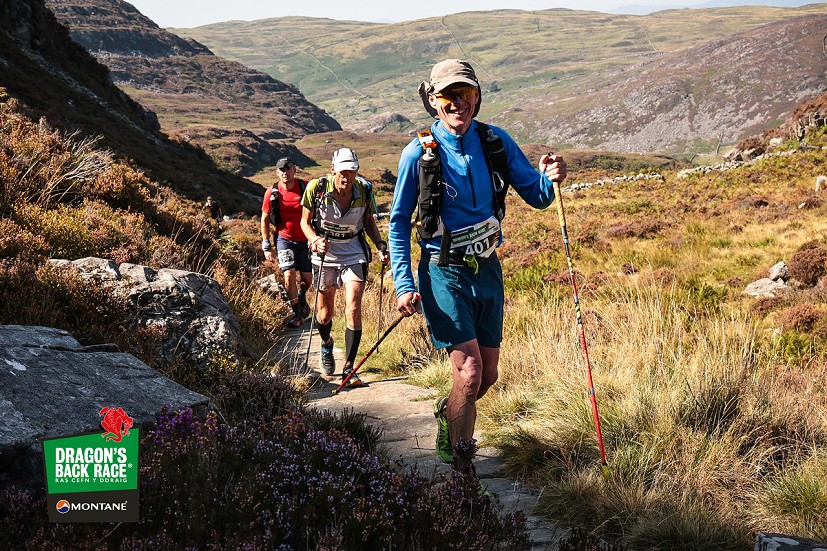
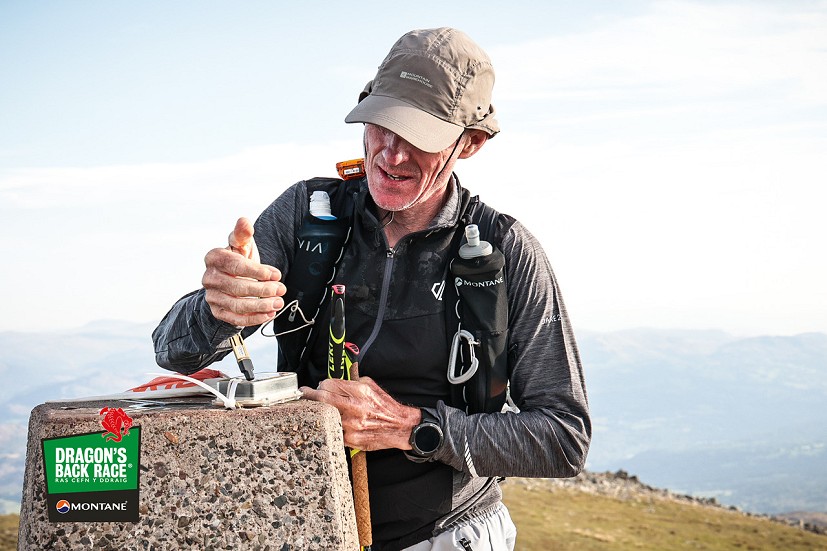
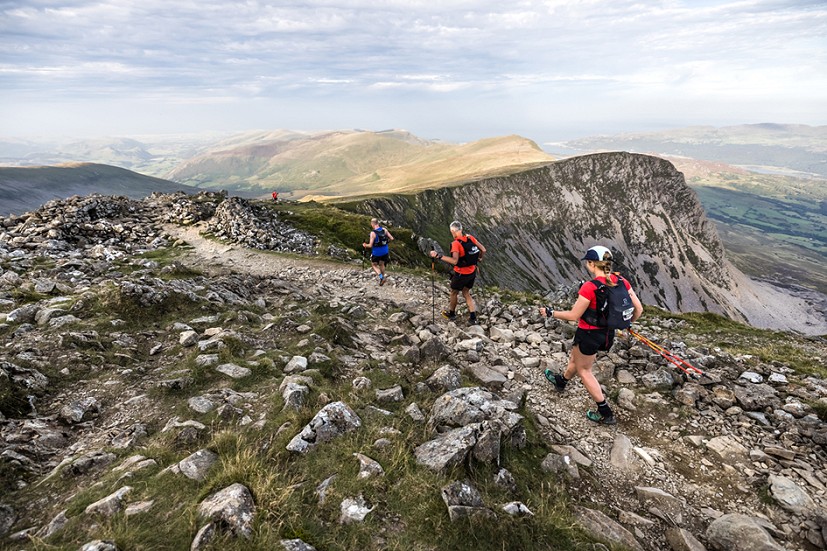





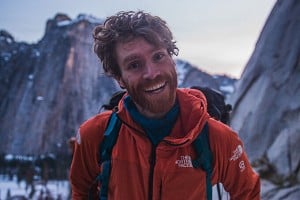
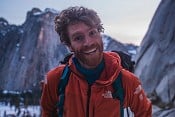
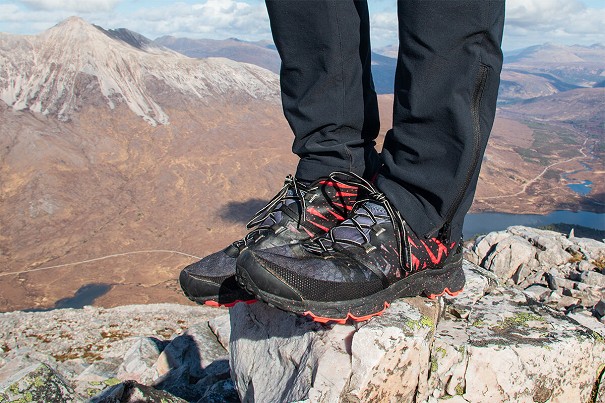
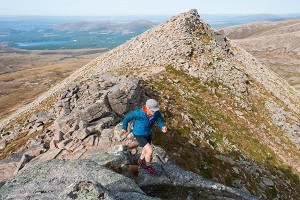
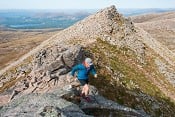
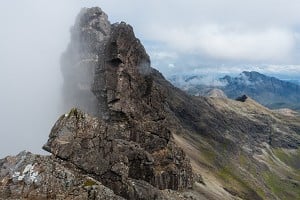
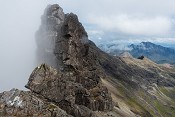
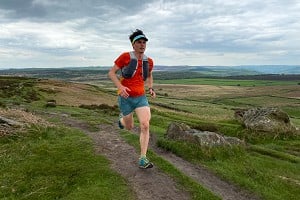
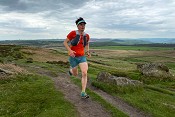
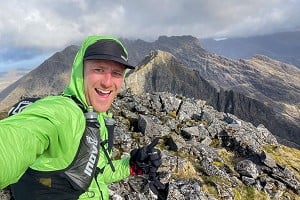
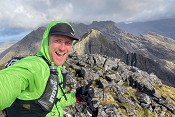
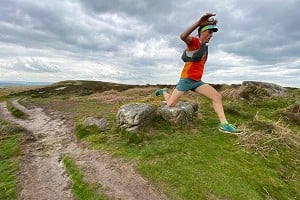
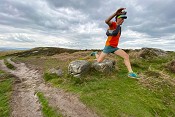
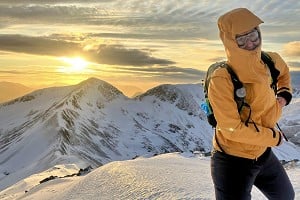
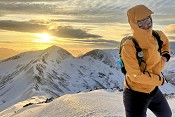
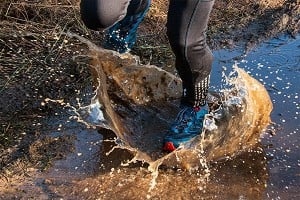
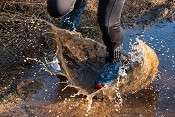
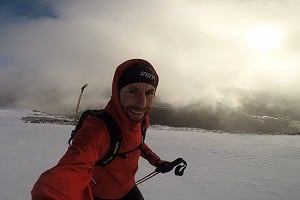
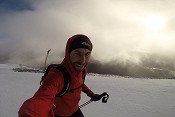
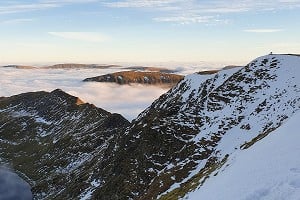
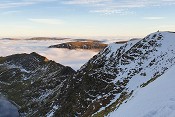
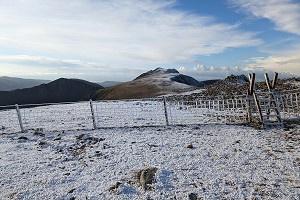
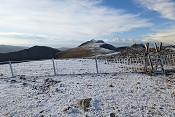
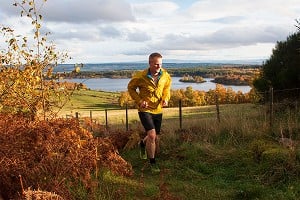

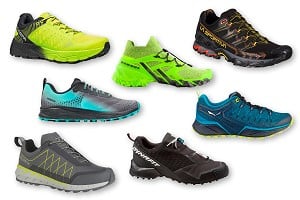

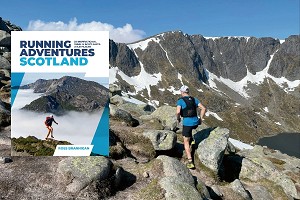
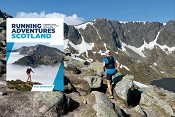
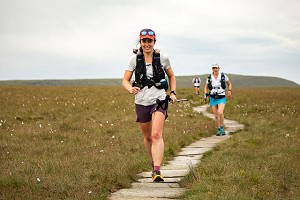
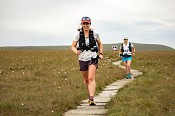
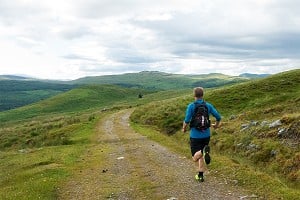
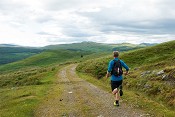
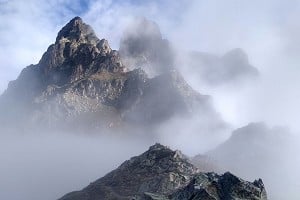
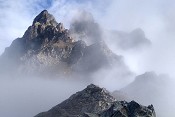
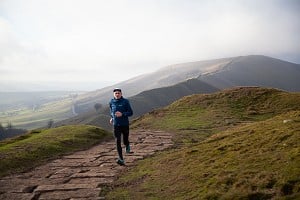
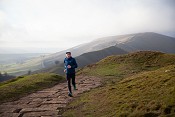
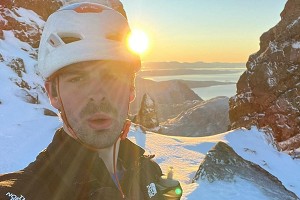
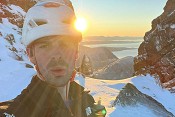
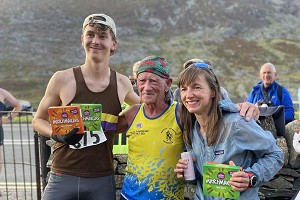
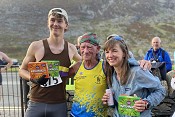
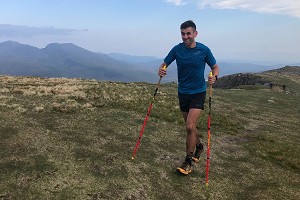
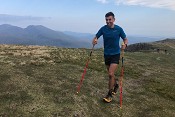
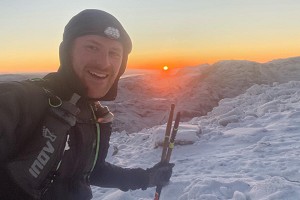
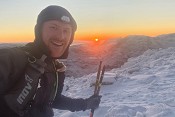
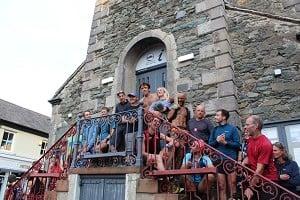
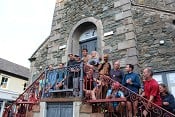
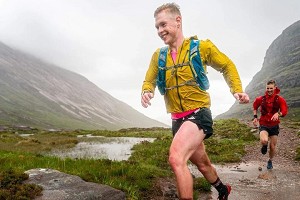
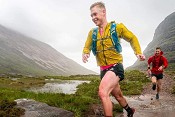
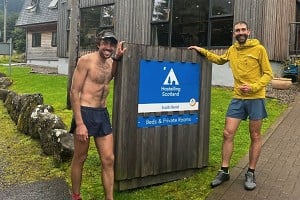
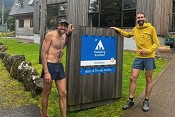
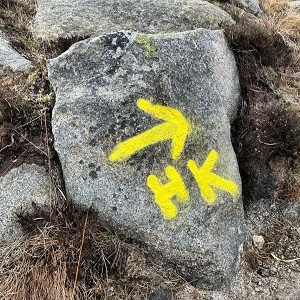
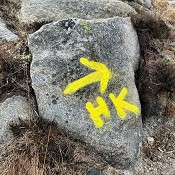
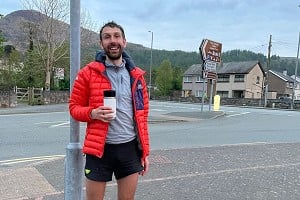
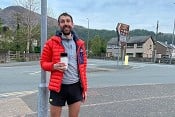
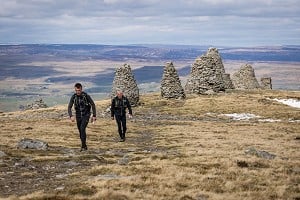
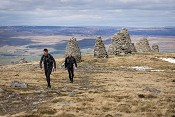
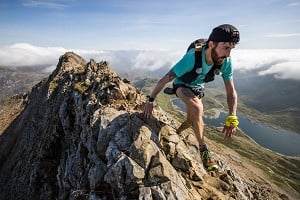
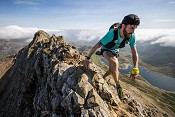
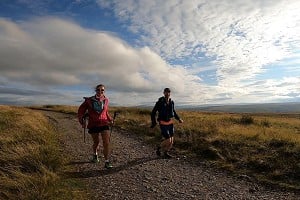
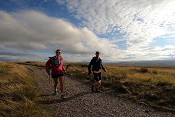
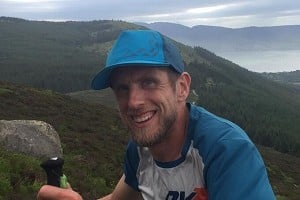
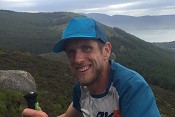
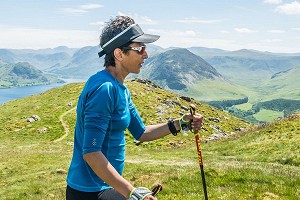
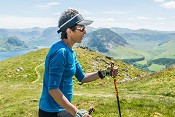
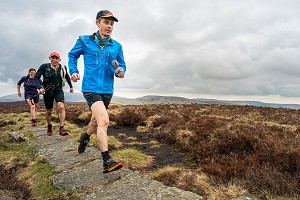
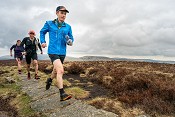
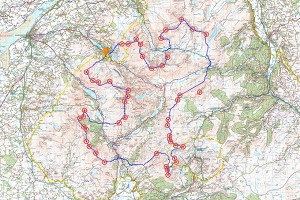
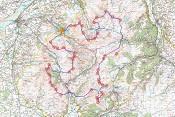
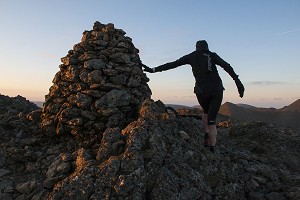
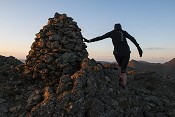
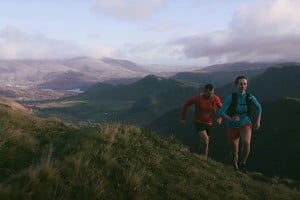
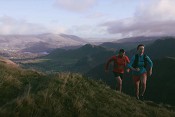
Comments
Great article, Chris, and well done for getting so far. I encountered the front runners at Ogwen on the first morning - the people getting the checkpoint ready were almost caught out because they turned up so quickly from Conwy!
Totally and utterly inspiring!
Whilst it may not be suitable to reproduce the answer online, I'd love to hear the backstory of this when I'm next in Outside:
"Save your breath for Tryfan and cut the chatter. You may be the type that needs sociable banter but a loud and lengthy discourse on your personal history of ultrarunning is both draining for you and on the listener."
That line had me in stitches...
Chapeau for a good read and getting that far! Some awfully strong people fell by the wayside, I can only imagine what it's like getting up the next morning after doing the Welsh 3000s. And again, and again...
Well done Chris, enjoyed that. I was on the Rhinogydd on that hot second day and on Cadair Idris on the third - you all looked and sounded so happy! I have nothing but the greatest admiration for everybody who competed - finishers or not. Here's to the next one.